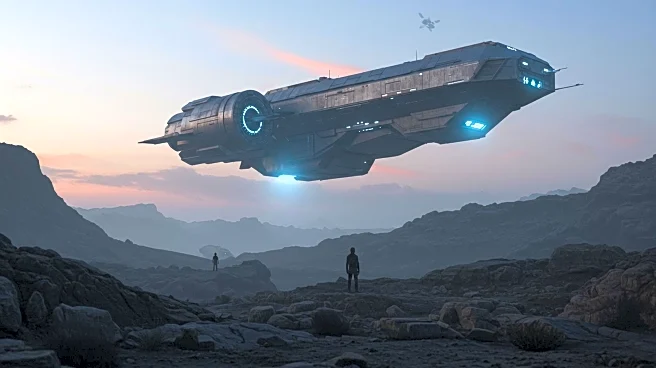What's Happening?
The new FX series Alien: Earth, directed and written by Noah Hawley, has premiered with two episodes now streaming on Hulu. The series marks a departure from previous entries in the Alien franchise, focusing on a fresh narrative that explores corporate exploitation and the consequences of transferring consciousness into synthetic bodies. The show introduces a new megacorporation, Prodigy, which experiments with transferring terminally ill children's consciousness into adult synthetic bodies. The series also features the iconic xenomorph, which escapes containment and crashes into a populated city, leading to suspenseful and visually stunning sequences.
Why It's Important?
Alien: Earth represents a significant shift in the Alien franchise, moving away from nostalgia-driven narratives to explore new themes. The series highlights the ethical implications of corporate practices and the commodification of human life, resonating with contemporary concerns about capitalism and technological advancements. By focusing on these issues, the show offers a fresh perspective that could attract a new audience while reinvigorating interest in the franchise. The involvement of Noah Hawley, known for his work on Fargo and Legion, adds credibility and creative depth to the series.
What's Next?
As Alien: Earth continues to unfold, viewers can expect further exploration of the ethical dilemmas posed by Prodigy's experiments and the consequences of the xenomorph's presence on Earth. The series may delve deeper into the corporate espionage and the impact on society, potentially leading to confrontations between the synthetics and their creators. The show's success could influence future entries in the franchise, encouraging more innovative storytelling and thematic exploration.
Beyond the Headlines
Alien: Earth challenges viewers to consider the broader implications of corporate control and technological advancements. The series raises questions about identity, autonomy, and the moral responsibilities of corporations, reflecting real-world debates about the role of technology in society. By addressing these issues, the show contributes to ongoing discussions about the future of humanity in an increasingly digital world.











